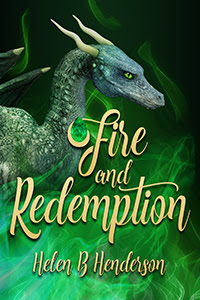One aspect of building a fantasy world is the religion. Or for some worlds, there is more than one belief system. For the "R" post in the A to Z in April Challenge, a few thoughts on the religions that appear in the Dragshi Chronicles, the Windmaster Novels, and Imprisoned in Stone.
In Nerelan, the world of the Dragshi Chronicles, the primary aspect of religion is ancestor worship. Members of some clans claim to see the ghosts of those who passed through the veil to the next world. Although the dragshi are the ultimate arbiters of justice, because of their few numbers and the fact they can take on dragon form and fly, they are not worshiped.
In the far eastern land of Eruichin, while they honor ancestors, the main religion is the rule of law that is overseen by the Emperor. The law was expanded with stronger liberties for women by Mirabeesh, Queen of the land after she shifted form with her dragon soul twin, Kimeshi. The rule of law then became known as Dragon Law. The tale of Mirabeesh is told in FIRE AND ICE, one of the stories chronicled in First Change: Legends From The Eyrie.
The other religion in Eruichin was run by the Daxa, religious leaders who served the temple of the god Tagachim who lives in the volcano that towers over the capital city. The temple leader was one step below the emperor/empress. His power comes from his authority as servant to Tagachim, an authority which includes human sacrifice. Chosen by lottery by the placing of carved ivory tokens placed in a wooden tube, single women over the age of fifteen, married women younger than forty without children, were selected as brides of Tagachi. A marriage made by either throwing the chosen one into the volcano or sealing her into an ice cave.
An even darker religion was the cult led by the Parant in the Dragshi Chronicles. He was discussed in the post, P is for Parant. The counter to the Parant is the Oracle of Givneh from the Windmaster Novels. From their temple on the plateau of Givneh on the main continent of Katheul, by tradition the followers of the oracle's teachings are a community of service. However, in Windmaster, a rogue mage took over the temple, usurped the will of the followers and twisted the religion to his own beliefs. Among his tenets was that magic is evil (unless it serves him.) Something that the false oracle didn't tell his followers? Blood sacrifices and blind obedience enhanced his powers.
To end this post, I'll end with the water gods popular with sailors when they ask for intercession. ~till next time, the Sailor's Blessing. "Fair skies and following seas."
 Click on the button to find my next post in the challenge. Remember, it won't be live until midnight after this entry.
Click on the button to find my next post in the challenge. Remember, it won't be live until midnight after this entry.If you're interested in following other blogs in the A to Z in April challenge, click on the logo for the master list of the other participants.

















No comments:
Post a Comment
By posting a comment on this site, you agree with the site's Privacy Policy on how your data is stored and handled.